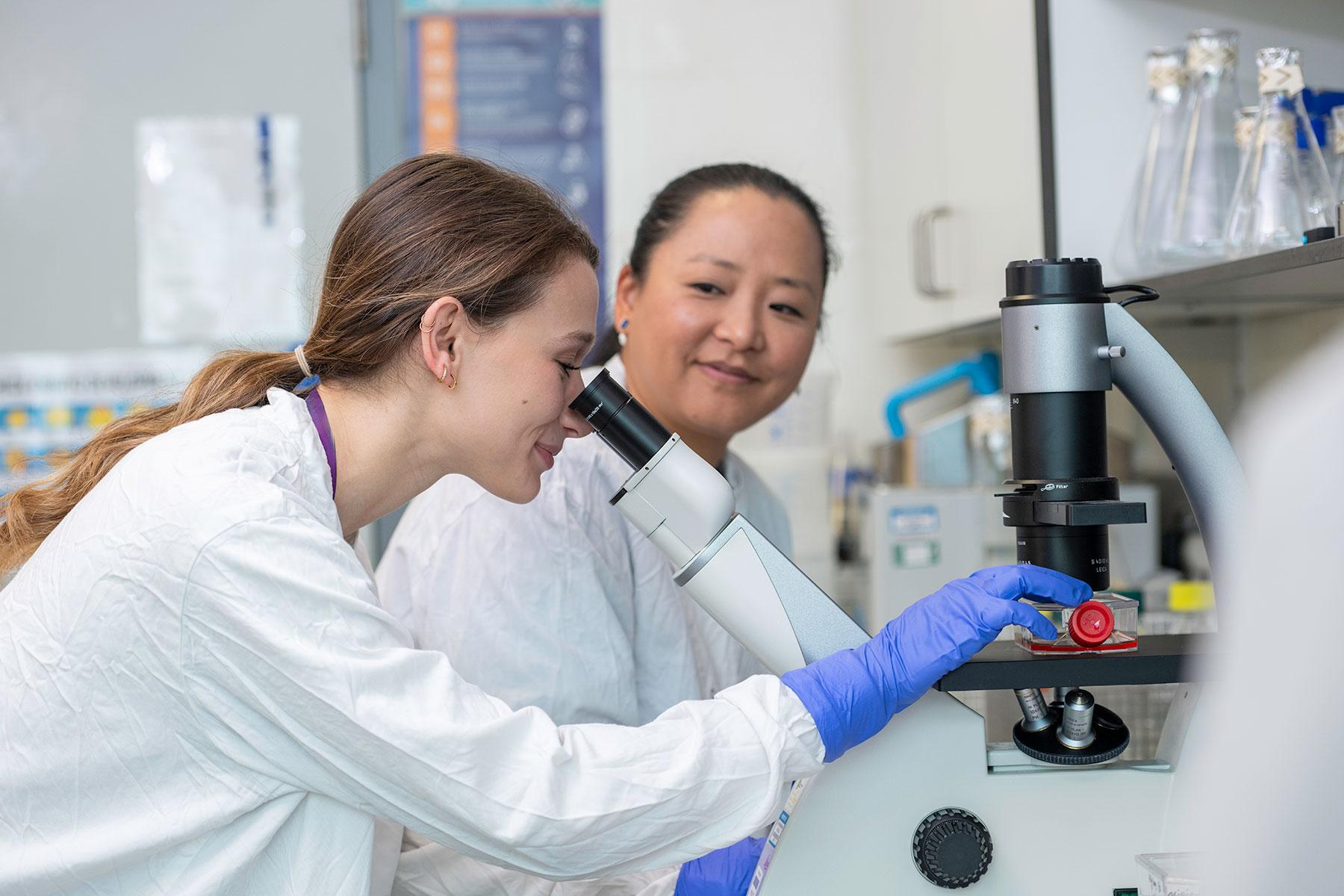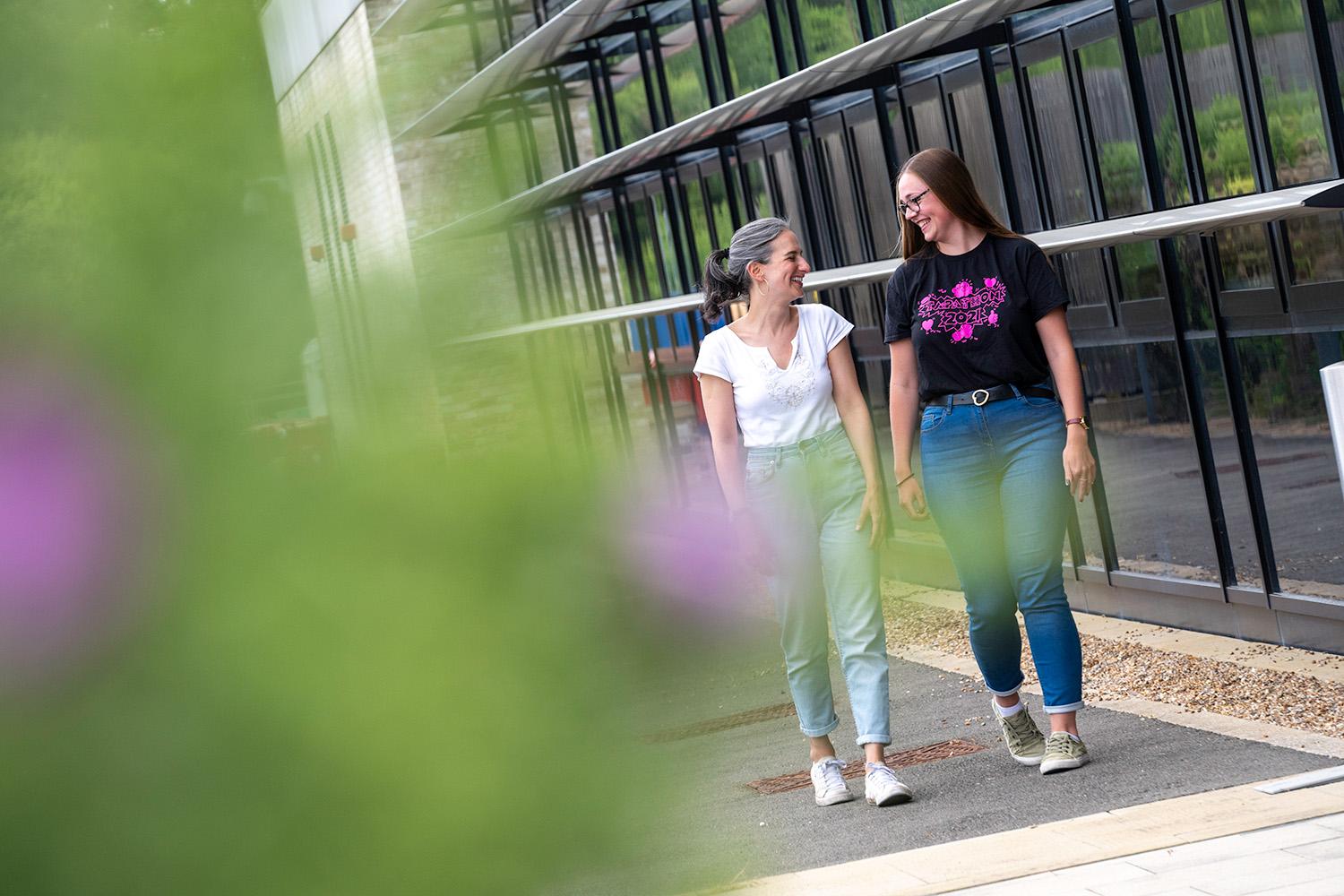Explore our opportunities to work with leading experts in virology and study viral diseases affecting livestock and their potential to spread to humans.
At Pirbright, our community of over 40 PhD students, affiliated with universities across the UK, benefit from access to world-class facilities in a vibrant environment that fosters research and collaboration.
We have partnered with various universities and industries to offer a selection of PhD studentships. These partnerships offer students an exceptional opportunity to obtain a broad view of infectious disease research in a dynamic and unique research environment.
Students can work with project partners, allowing for interdisciplinary, cross-institutional approaches to solving the challenges of livestock and zoonotic viral diseases. This approach is complemented by core skills training at the student's host institutions, providing flexible training options and experiences that support a wide range of career paths.
Funding
PhD studentships for UK students are primarily funded by the UKRI Biotechnology and Biological Sciences Research Council (BBSRC).
International students are welcome to apply, but they must secure funding through scholarships or other means, as detailed in each specific studentship advert.
Available studentships
The following PhD studentships are now open for applications:
Project Title: Enemy at the gate – Understanding the role of stress granules in sensing and regulating viral infection
Supervisors: Nicolas Locker, Helena Maier (The Pirbright Institute); Chad Swanson, Melanie Bailey (King’s College London)
Click here for further details about the project and the application process.
Note: Applications must be submitted via King’s College London.
Application Closing Date: 22 February 2026
Project Title: Disease-resistant livestock: Uncovering the Role of Viral IFN Antagonism on Infectivity using Gene-Editing (Ref: 2026/01)
Principal Supervisors: Dr James Kelly (The Pirbright Institute), Dr Finn Grey (The Roslin Institute, University of Edinburgh)
Research Group: Picornavirus Tropism
Anticipated Start Date: October 2026
Programme Duration: 3.5 years (full‑time)
This PhD project seeks to identify and understand the specific gene edits that can protect porcine (pig) cells from FMDV infection. Specifically, the research will focus on enhancing the ability of the host's antiviral defence pathways to provide robust protection against FMDV infections.
Click here for further details about the project and the application process.
Application Closing Date: 20 March 2026



